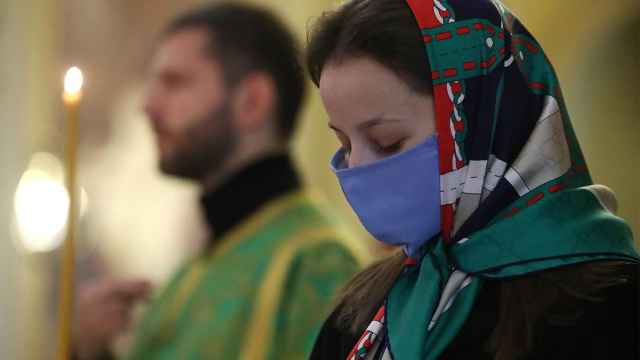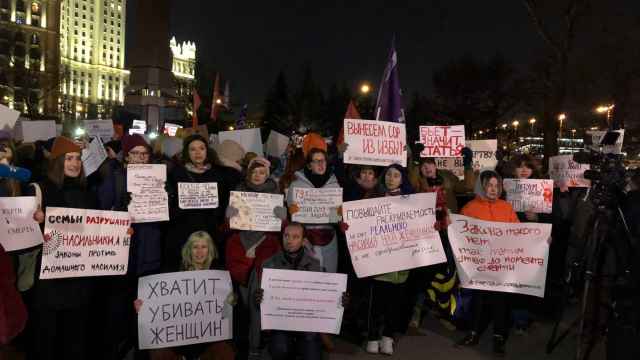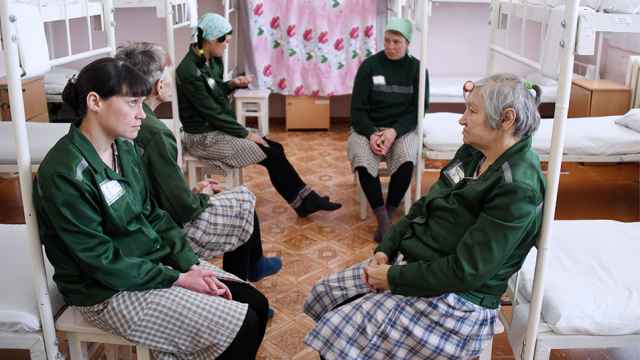On an early Sunday evening in central Moscow, journalists and members of the public gathered for a specially curated exhibition called “Polly’s Cracker” — a reference to a song by the group Nirvana “Polly” about a young girl who escapes her kidnapper and sexual abuser.
“I’d like to stress how a loving relationship can turn into a violent relationship, and how violence can also [appear to show] symbols of love,” said artist Michelle Pagel, who lives in Vienna but was born in Germany. Pagel, who has been working from Moscow for a month as part of a series with the Austrian Cultural Forum, told The Moscow Times that this is her first exhibition on domestic violence. The exhibition was organized in partnership with support group for women "Ты Не Одна" (You are not alone).
Held in an apartment in central Moscow overlooking the Kremlin, the space and art is particularly poignant in a Russian setting. In 2017, the Russian government largely decriminalized domestic violence: prison sentences for first-time abusers whose acts of violence resulted in “minor harm” were done away with. Since then, reports of violence at home have skyrocketed.
“I think it’s a good opportunity to expose this topic here in a domestic space, and not only in galleries and big institutions, but to take it back to the private surroundings,” Pagel said. “Areas that should be protected are often the most dangerous ones — for women, and for everyone.”
Pagel hopes to demonstrate in her art installations — all of which were created for the exhibition —that murders and suicides can often be the result of violence in the home and unaddressed issues in society. In one work, a bag of oranges hangs from a wall. It doesn’t take long to see that all the oranges are bruised. Pagel explained that if you hit someone with oranges, the person doesn’t bruise, but the oranges do – another symbol of how domestic violence is often easily hidden.
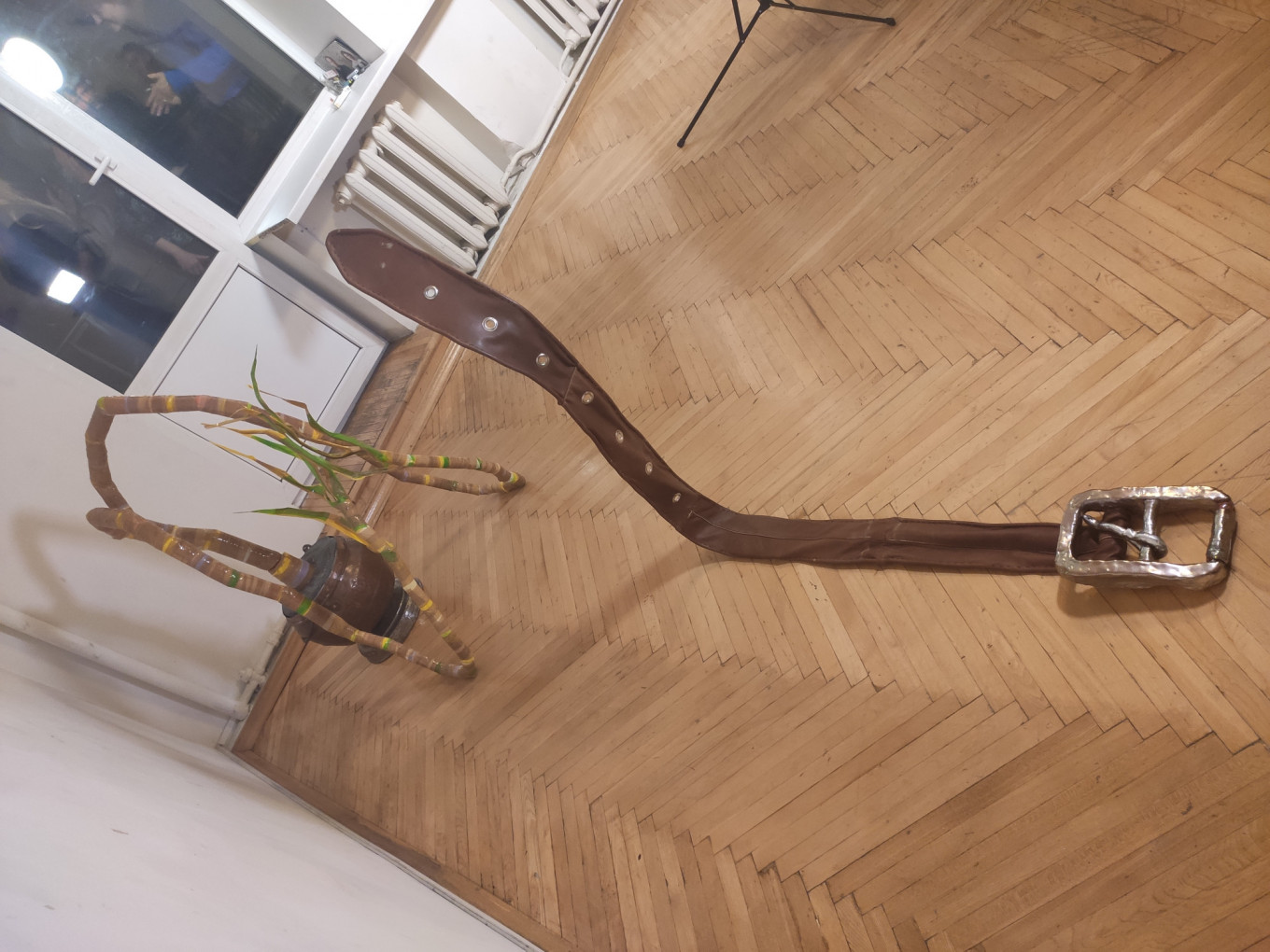
As you walk through the apartment, more art is waiting to be taken in. Themes of trees and roots dominate, one with the branches of a tree holding up a rolling pin and a saucepan – symbols of domestic life. But in another spot, a large belt with a metal buckle stands ominously upright out of the floor.
In another place, three brightly colored balloons float near the ceiling; near them, a black balloon looms. Attached to each balloon is a noose instead of a string. This was a reference to a particularly heinous case of sexual and physical abuse in which the Khachaturyan sisters killed their abusive father after decades of rape and abuse. They are now on trial for murder.
“What I’m fascinated with is the depth of the presentation,” Austrian Ambassador to Russia Dr. Johannes Eigner told The Moscow Times. “It’s a very serious subject on one hand, but on the other hand she marvelously achieves giving it a bit of a satirical twist, which is very difficult in such a serious subject.”
Pagel was quick to stress that this is not a criticism of Russian society alone; her art represents situations in Austria and around the world as well.
“Instead of pitying the victim, we should rethink the structures we are in, and to think, is it really that harmless to be in a family?” she said.
Pagel hopes visitors will leave the exhibition with a change in their idea of safety and relationships. “Maybe self-chosen structures like friendships are less violent than conservative structures that we have — those that we all think are the best and most peaceful.”
The exhibition will run until Nov. 8 with admission by request. For more information and to set up an appointment, contact the organizers directly.
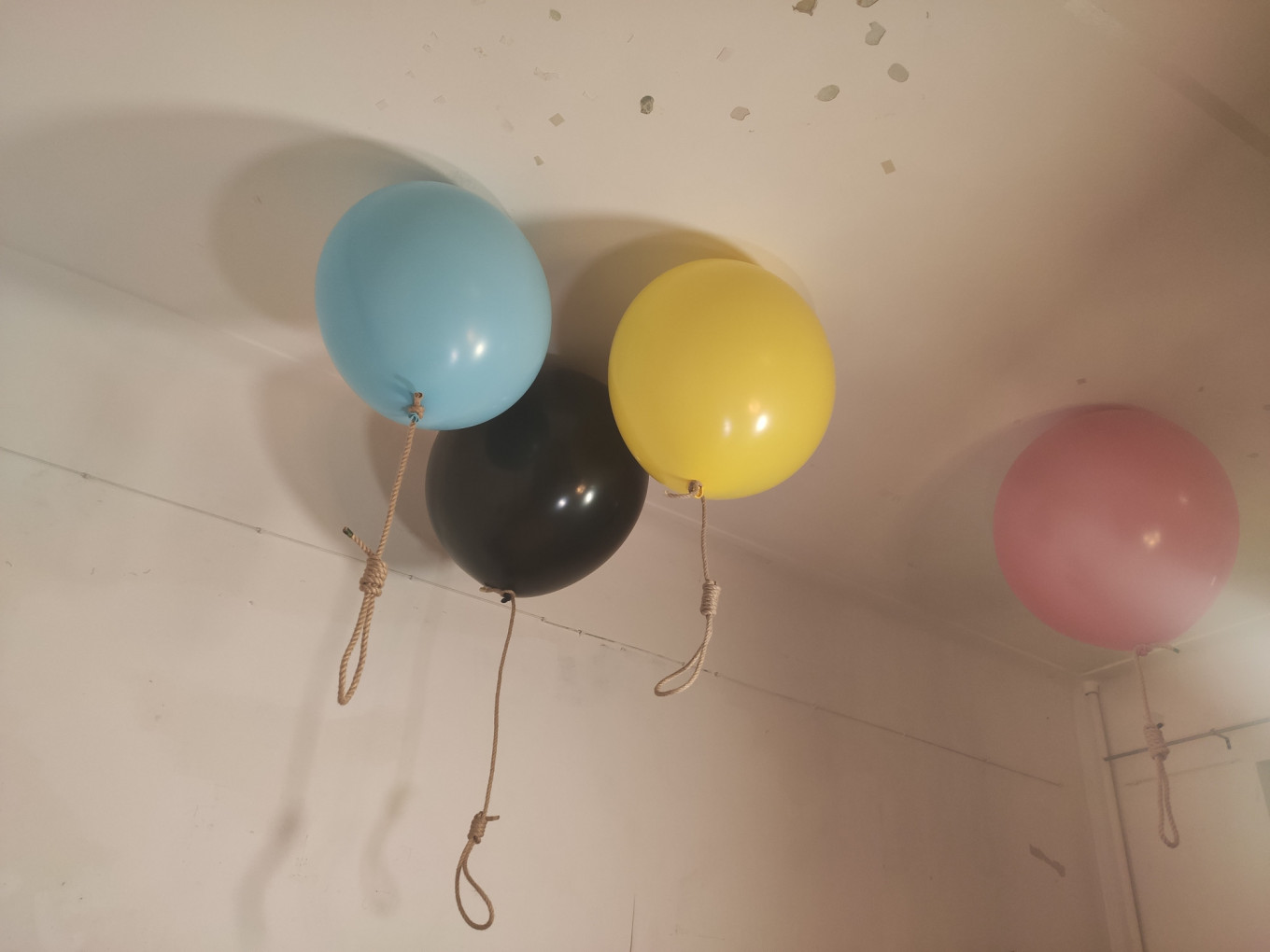
A Message from The Moscow Times:
Dear readers,
We are facing unprecedented challenges. Russia's Prosecutor General's Office has designated The Moscow Times as an "undesirable" organization, criminalizing our work and putting our staff at risk of prosecution. This follows our earlier unjust labeling as a "foreign agent."
These actions are direct attempts to silence independent journalism in Russia. The authorities claim our work "discredits the decisions of the Russian leadership." We see things differently: we strive to provide accurate, unbiased reporting on Russia.
We, the journalists of The Moscow Times, refuse to be silenced. But to continue our work, we need your help.
Your support, no matter how small, makes a world of difference. If you can, please support us monthly starting from just $2. It's quick to set up, and every contribution makes a significant impact.
By supporting The Moscow Times, you're defending open, independent journalism in the face of repression. Thank you for standing with us.
Remind me later.





